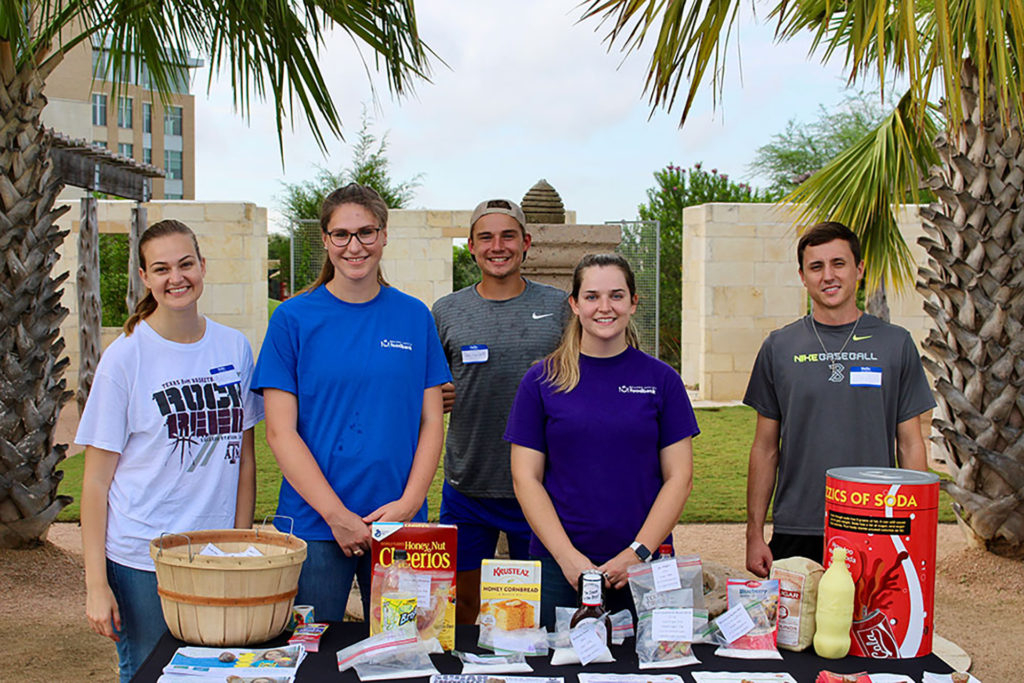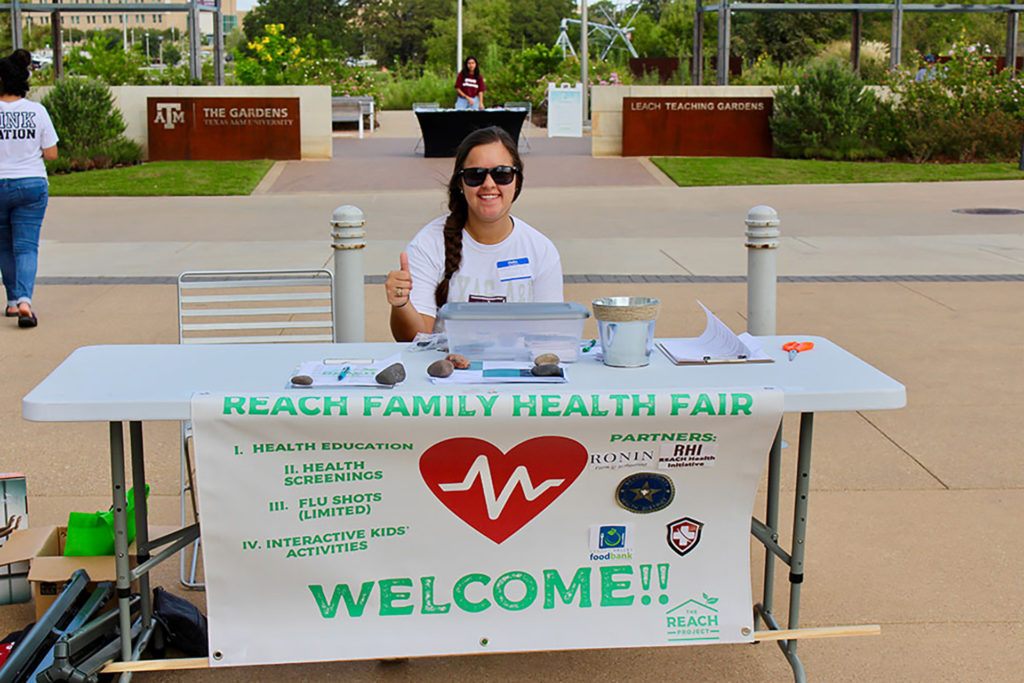Empowering Texas A&M contract service workers through outreach
The REACH Project, Leach Teaching Gardens partner to help campus workers achieve their fullest potential
In 2017, Max Gerall ’18, then an undergraduate at Texas A&M University, founded The REACH Project. The nonprofit organization provides health, education, financial management and housing programs to help the university’s contract service workers overcome poverty.

Through REACH — an acronym for respect, empowerment, aspiration, community and hope — Gerall’s mission was to create “high-impact service opportunities” for Aggie students to serve those he termed the “essential Aggies”— the groundskeepers, food service employees, and maintenance and custodial staff who maintain the campus and ensure it runs smoothly.
The Leach Teaching Gardens, a part of The Gardens at Texas A&M University, has been involved in the organization’s outreach from its beginning, along with students, faculty and other community contributors.
Outdoor venue supports campus community
The first REACH event introducing Texas A&M faculty to the organization included a tour of The Gardens, which opened the door to a long-standing relationship.
“The Gardens is a community asset, and the impact of its land-grant mission of discovery and service goes beyond its physical footprint at the university,” said Michael Arnold, Ph.D., director of The Gardens and professor of landscape horticulture in the Department of Horticultural Sciences at the College of Agriculture and Life Sciences.
“One of our most important goals is to engage the community by encouraging curiosity and developing wonder — not only by physical activity and refreshing the spirit but also by teaching about agriculture and nature and making it relevant to everyday life,” Arnold said.
Gerall, now executive director of REACH, said, “The Gardens is our preferred venue when hosting outdoor events. One of the passions of REACH is to help individuals connect with nature for mental and physical health benefits, and The Gardens is a great place to do just that.”
He said it is an accessible space to provide education and support to essential Aggies and their families as well as a safe haven — a place to escape, relax and focus on their mental health. REACH has hosted a series of outreach events in The Gardens, ranging from health fairs to programs on nutrition and cooking demonstrations.
In addition, The Gardens and the Brazos Valley Food Bank donate produce to the meals that REACH distributes on campus to 150-170 families every Monday and to 450 families every fourth Saturday.
Creating win-win opportunities through selfless service
“All the members of the Texas A&M community involved in a REACH program benefit,” Gerall said. “The campus workforce learns from the academic knowledge of the student volunteers. The students experience selfless service, increasing their capacity for empathy as future leaders.”

More than just a venue, The Gardens is instrumental in delivering hands-on learning about growing healthy food and distributing produce to the essential workers who maintain the campus for students, faculty and visitors, often behind the scenes.
“Our partnership with The Gardens has been awesome,” Gerall said. “It illustrates the beautiful sustainability possible when you leverage the intellectual resources and capacity of universities to benefit every member of that university,” Gerall said. “Everyone is willing to serve and support each other.”
Connecting with nature transforms lives
Gerall said conducting programs in The Gardens has had a multigenerational impact on the workers’ families, even inspiring many to start gardening at home.
“Once their families discovered The Gardens as a welcoming space, participation in the container gardening, healthy eating and cooking demonstrations skyrocketed,” Gerall said. “I think the connection to nature does so much good for so many. And having that resource has changed the lives of not only the essential Aggies but their children as well.”
Part of the long-term vision of REACH is to create REACH for Home Villages, affordable rental housing that would include access to on-site education and health care. In addition, because of the impact The Gardens has had on the families involved in REACH, Gerall said plans for the future housing communities would include community gardens.
Learn more about The REACH Project and how you can help at https://reach4home.org/.


